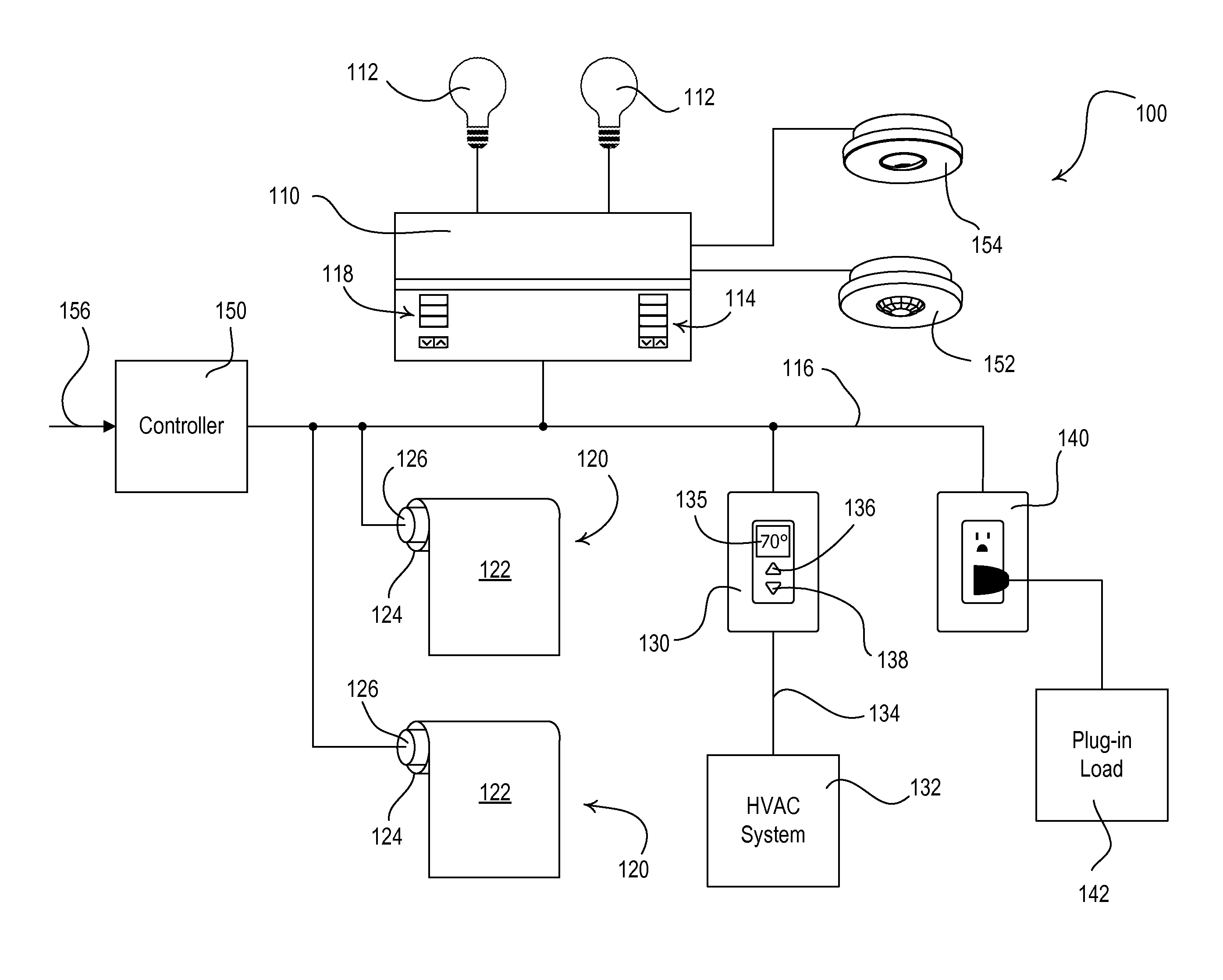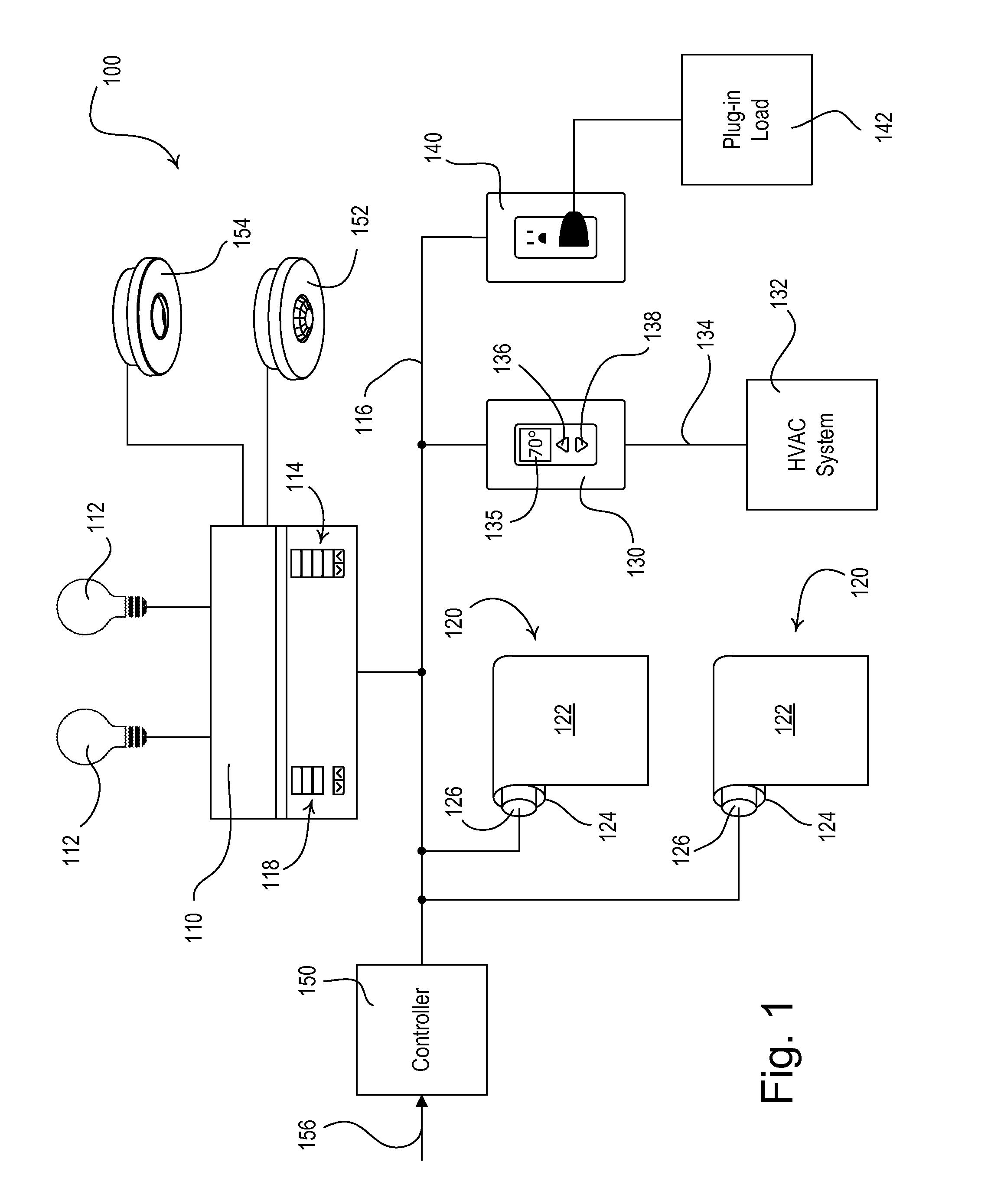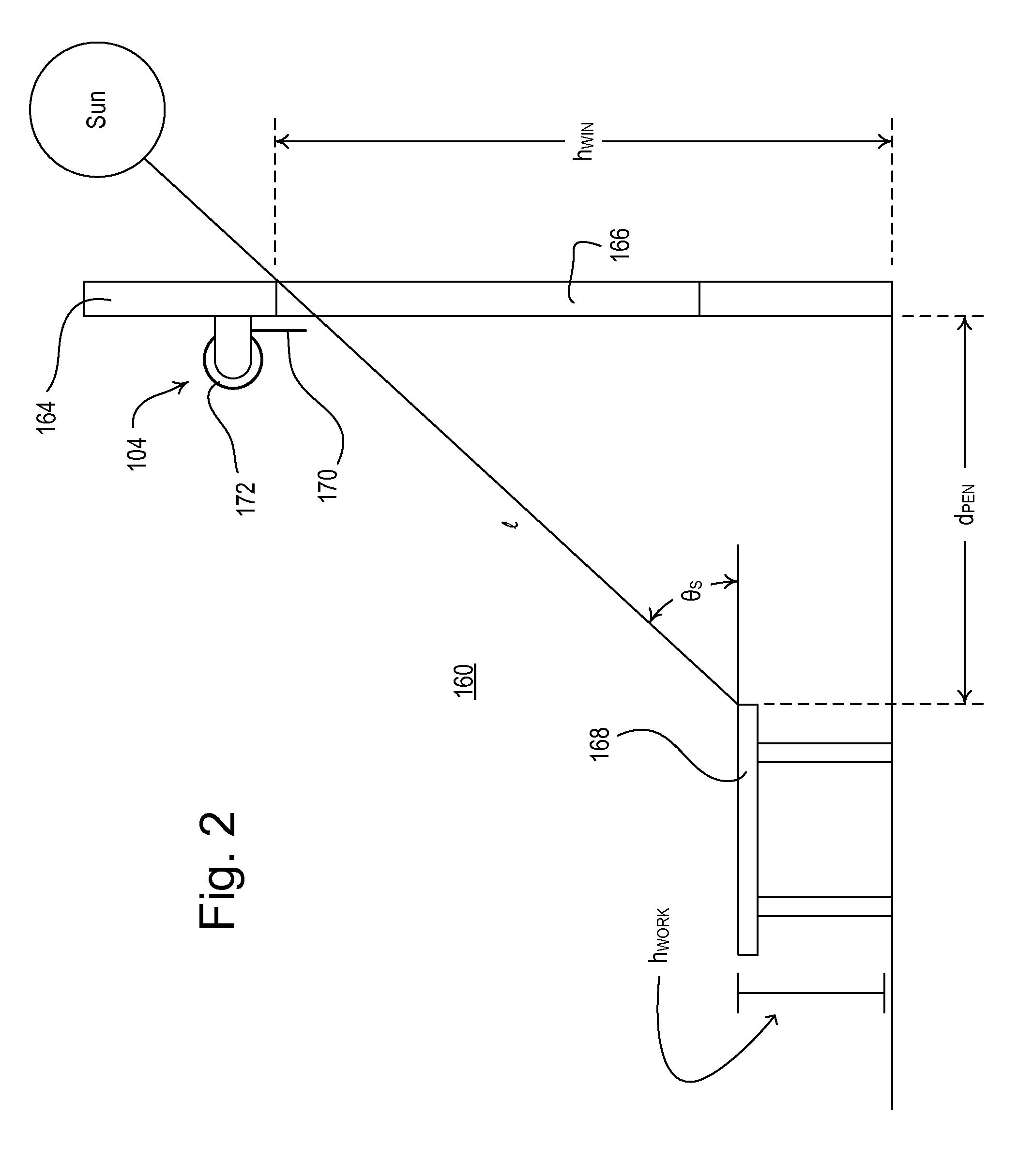Load Control System Having An Energy Savings Mode
- Summary
- Abstract
- Description
- Claims
- Application Information
AI Technical Summary
Benefits of technology
Problems solved by technology
Method used
Image
Examples
first embodiment
[0045]FIG. 1 is a simplified block diagram of a centralized load control system 100 that may be installed in a building (such as a commercial building) according to the present invention. The load control system 100 comprises a multi-zone lighting control device 110 that is operable to control the amount of power delivered from an alternating-current (AC) power source (not shown) to one or more lighting loads 112 for adjusting the intensities of the lighting loads. The lighting load 112 may be located in a space 160 (FIG. 2) of the building to thus control the amount of electric light (i.e., artificial light) in the space. The lighting loads 112 may comprise, for example, incandescent lamps, halogen lamps, gas discharge lamps, fluorescent lamps, compact fluorescent lamps, high-intensity discharge (HID) lamps, magnetic low-voltage (MLV) lighting loads, electronic low-voltage (ELV) lighting loads, light-emitting diode (LED) light sources, hybrid light sources comprising two or more di...
second embodiment
[0111]FIG. 16 is a simplified flowchart of a planned demand response procedure 1200 executed by the controller 150 of the load control system 100 according to the present invention. In response to receiving a planned demand response command, the controller 150 controls the load control system 100 to reduce the total power consumption at a predetermined start time tSTART in the future, for example, at noon on the day after the planned demand response command was received. The controller 150 is operable to “pre-condition” (i.e., pre-cool or pre-heat) the building before the start time tSTART of the planned demand response command, such that the HVAC system 132 will be able to consume less power during the planned demand response event (i.e., after the start time). To pre-condition the building before a planned demand response event, the controller 150 is operable to pre-cool the building when the HVAC system 132 is in the cooling mode and will be cooling the building during the presen...
third embodiment
[0118]According to the present invention, the controller 150 is operable to control the lighting control device 110, the motorized roller shades 120, the temperature control device 130, and the controllable electrical receptacle 140 according to a plurality of demand response (DR) levels. A demand response level is defined as a combination of predetermined parameters (e.g., lighting intensities, shades positions, temperatures, etc.) for one or more of the loads of the load control system 100. The demand response levels provide a number of predetermined levels of energy savings that the load control system 100 may provide in response to the demand response command. For example, in a specific demand response level, a certain number of lighting loads may be dimmed by a predetermined amount, a certain number of motorized roller shades may be closed, a certain number of plug-in electrical loads 142 may be turned off, and the setpoint temperature may be adjusted by a certain amount. The d...
PUM
 Login to View More
Login to View More Abstract
Description
Claims
Application Information
 Login to View More
Login to View More - R&D
- Intellectual Property
- Life Sciences
- Materials
- Tech Scout
- Unparalleled Data Quality
- Higher Quality Content
- 60% Fewer Hallucinations
Browse by: Latest US Patents, China's latest patents, Technical Efficacy Thesaurus, Application Domain, Technology Topic, Popular Technical Reports.
© 2025 PatSnap. All rights reserved.Legal|Privacy policy|Modern Slavery Act Transparency Statement|Sitemap|About US| Contact US: help@patsnap.com



